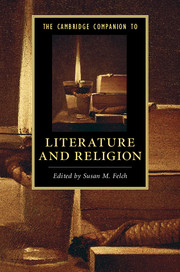6 - Imagination
from PART II - INTERSECTIONS
Published online by Cambridge University Press: 05 September 2016
Summary
It is intuitive that literary fiction should depend upon imagination. Christian theology, on the other hand, has typically approached the imagination with somewhat more caution. This is perhaps because anxieties over the foundations of Christian truth claims have traditionally complicated theology's imaginative sense. Whereas truth might be understood by theology as either revealed by God or discovered through reason, Christians have rarely warmed to the notion of truth as conjured by human imagination. Whatever the role of the imagination in Christian theology – and who could deny such a role in the monumental work of figures like Augustine of Hippo or Julian of Norwich or Karl Barth – most Christians would resist referring to theological or scriptural writings as mere fictions or imaginations.
Conventional intuitions notwithstanding, in recent years the imagination has come usefully to bridge literary (especially fictional) writing with theological (sometimes scriptural) reflection in a manner that might prove illuminative for the study of religion and literature at large. As critical theory has progressively reconsidered the simple givenness of any proposed truth, theology has found its own anxieties less singular. Consider Toni Morrison's reflections here on the practice of literary writing in her essay, “The Site of Memory”:
On the basis of some information and a little bit of guesswork, you journey to a site to see what remains were left behind and to reconstruct the world that these remains imply. What makes it fiction is the nature of the imaginative act: my reliance on the image – on the remains – in addition to recollection, to yield up a kind of truth … Fiction, by definition, is distinct from fact. Presumably it's the product of imagination – invention – and it claims that freedom to dispense with “what really happened,” or where it really happened, or when it really happened, and nothing in it needs to be publicly verifiable, although much of it can be verified … [But] the crucial distinction for me is not the difference between fact and fiction, but the distinction between fact and truth. Because facts can exist without human intelligence, but truth cannot … The approach that's most productive and most trustworthy for me is the recollection that moves from the image to the text. Not from the text to the image.
- Type
- Chapter
- Information
- The Cambridge Companion to Literature and Religion , pp. 103 - 115Publisher: Cambridge University PressPrint publication year: 2016



